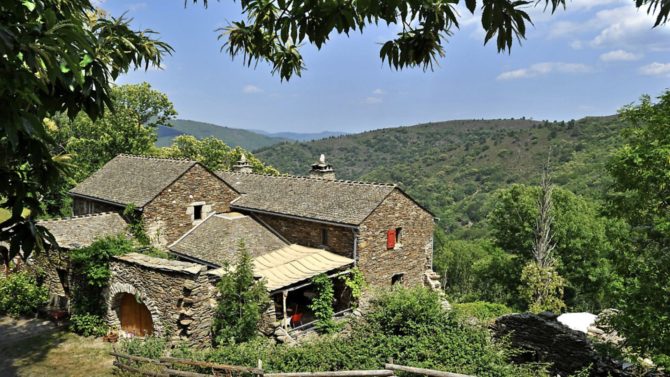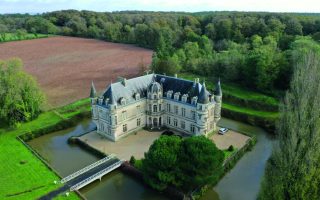What is it like to live in a national park in France?

It was the tranquillity and natural beauty of the Cévennes National Park that attracted Dutch couple Henk-Jan and Marjoleine Spruijt to start a new life in Lozère, as Henk-Jan explains…

How did you come across Lozère?
We were looking for a family holiday somewhere surrounded by nature, with no hustle and bustle and far from major roads. Mont Lozère appeared as a green spot on the map and caught our attention. We found it was full of energy and steeped in history, with unrivalled silence, abundant nature, no pollution and dark nights. It was an extraordinary experience.
How did you find the property?
We found the property on the internet in 2005, after five years of intense searching with estate agents. It was a beautiful project: completely abandoned, uninhabited for the past century with an unsuccessful refurbishment attempted 15 years ago. It was situated in the heart of the Cévennes National Park, part-roofed, part-ruin with several inner courtyards, archways, terraces and forested grounds. It was surrounded by a village with authentic character, built in natural stone. I said to Marjoleine, ‘If you say yes, we’ll go for it’. And she did!

Did you have to do much work to the property?
When we moved in May 2006 we had no mains water or electricity; no landline or mobile phone signal; no toilet, bathroom or kitchen; and no windows or doors. We worked day and night for a year. It was very hard work and the beginning was undeniably difficult. Four months in, we finally got electricity and after nine months, we had a telephone and the internet. We had installed 32 windows and doors and we finished the chimney, meaning that just before Christmas we were able to heat the living space.
__________________________________________________________
Related articles
10 things to consider before buying property in a national park
Discover France’s stunning national parks
__________________________________________________________
What’s the best thing about running a chambres d’hôtes in the area?
Meeting our guests has been a hugely enriching for us. It’s like we travel in our own home. It is a continual cultural and intellectual exploration. People that come here have the same awareness as we do. They too believe in being respectful of your surroundings, fellow human beings and the hard work of previous generations that is all around us. It is a win-win situation.
You also cook for your guests. Tell us more about that.
We do the cooking together every evening, and both of us have developed our own domain of expertise in the kitchen. We have a big selection of cooking books and draw our inspiration from everything, from newspaper articles to television series and most of all of our surroundings. Just like the architecture, the cooking should involve local produce, respect the core values that we have set ourselves and yet have that little spark of modernity.
How have your children coped with the move to France?
We have always involved them in the process and projects to make sure they were a part of it. They found their way after a few months and learned French at an incredible speed. Their flexibility is astonishing. The social impact was big for them but they sure do see the advantages.
What has living in the Cévennes National Park taught you?
That you need to truly work to live, rather than work for a living. It makes you think differently about everything you do. It is like things here matter more. It makes you feel like really living and gives you a purpose in life. The breathtaking countryside of the Cévennes is something we fell in love with. The diversity, the remoteness, having the feeling you are but a guest. It makes you more down to earth.
Other articles you might like:
What is it really like to live in rural France?
Share to: Facebook Twitter LinkedIn Email


